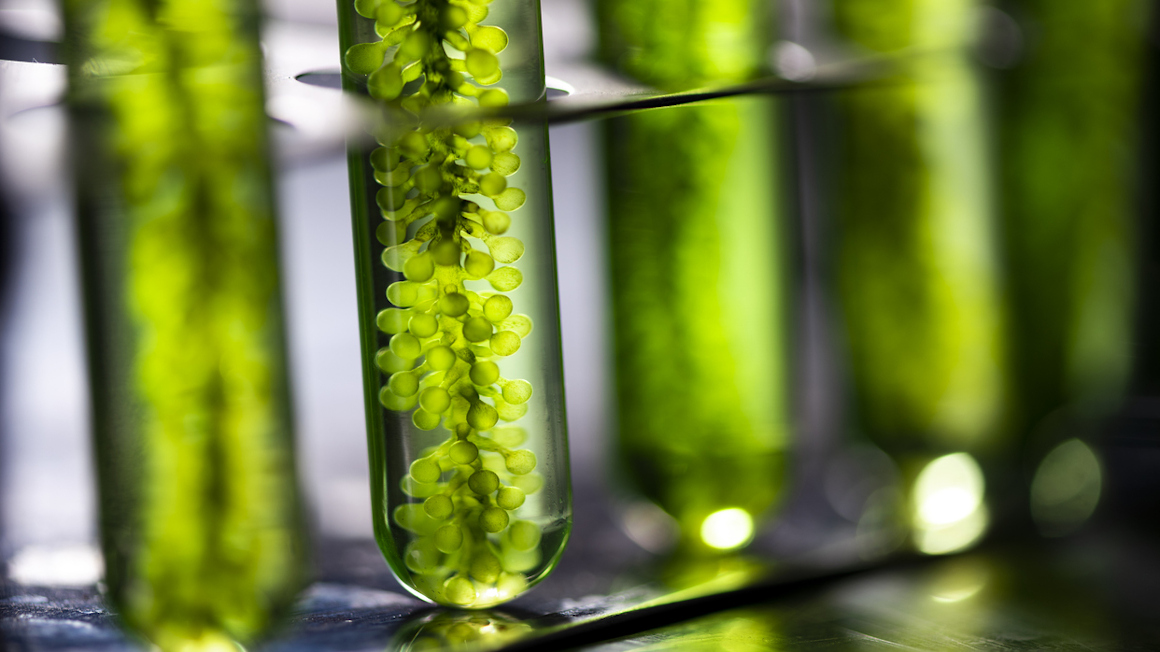Algae as green hydrogen producers
A German-Japanese research team wants to enable algae to produce green hydrogen without photosynthesis even at night.

For many, hydrogen is the energy carrier of the future because it is a clean and versatile fuel that produces no direct greenhouse gas emissions. But hydrogen is only sustainable if it is produced with electricity from renewable sources. In the project "Structure-based Metabolic Engineering of H2 Production by Algae (H2M)", researchers from Ruhr-Universität Bochum and Osaka University want to use certain microalgae as hydrogen producers and enable them to produce hydrogen not only during the day through photosynthesis, but also at night.
Decoupling hydrogen production of the alga from photosynthesis
"In the project, we are pursuing a novel approach to biological H2 production by transferring the H2 metabolism that naturally takes place in the chloroplasts of certain microalgae to their mitochondria," explains project leader Thomas Happe. The transfer of hydrogen production to the so-called power plants of the cells ensures that the cells of the algae grow by photosynthesis as usual during the day and then use the stored carbon for sustainable hydrogen production at night.
Optimizing molecular processes
For this to succeed, the process must first be optimized at the molecular level. The German-Japanese research team therefore wants to investigate the biocatalysts involved in detail. "Our Japanese partner has outstanding capabilities in the structural elucidation of biomolecules. The continuation and expansion of our cooperation promises many new insights into the biological hydrogen production machinery of algae," explains Thomas Happe. The researchers hope to have found a better approach for the production of biological hydrogen on an industrial scale.
Longstanding research cooperation
The project is part of a long-standing research collaboration between Ruhr University Bochum and Osaka University, which was extended for another five years at the end of 2022. In another project, the team is looking for innovative solutions for biofuel cell technologies.
bb


